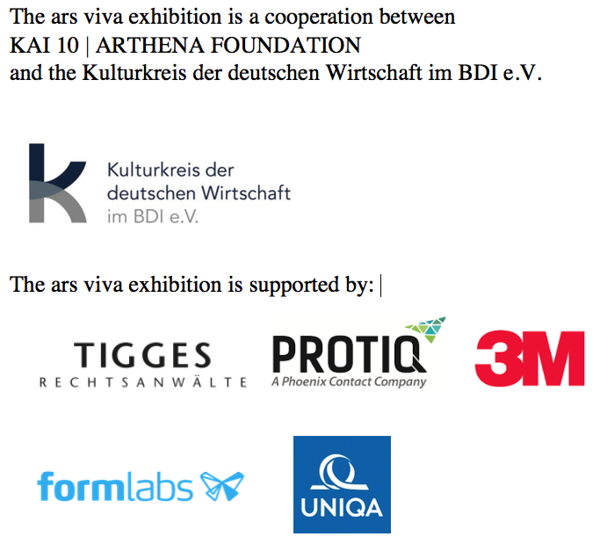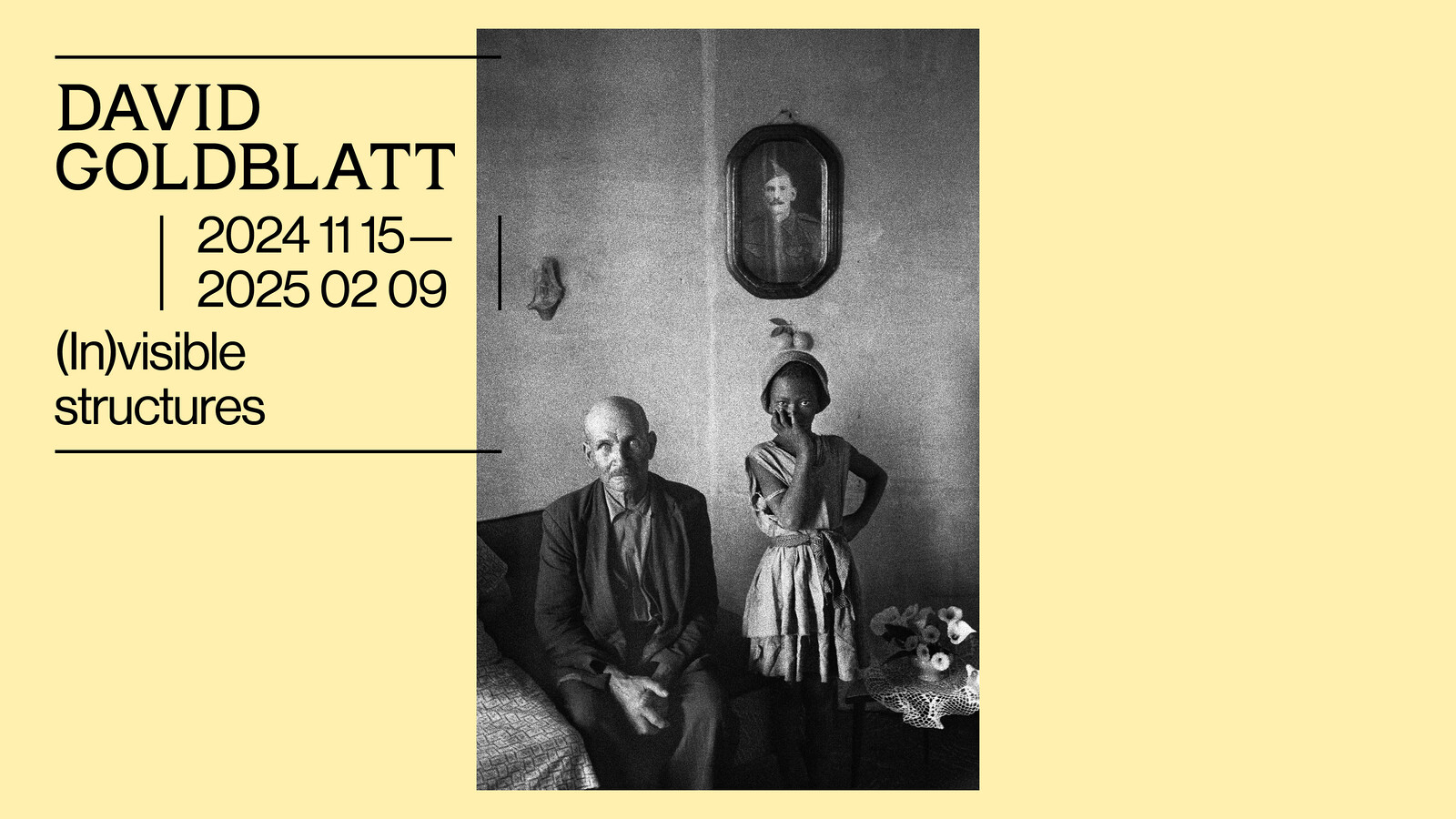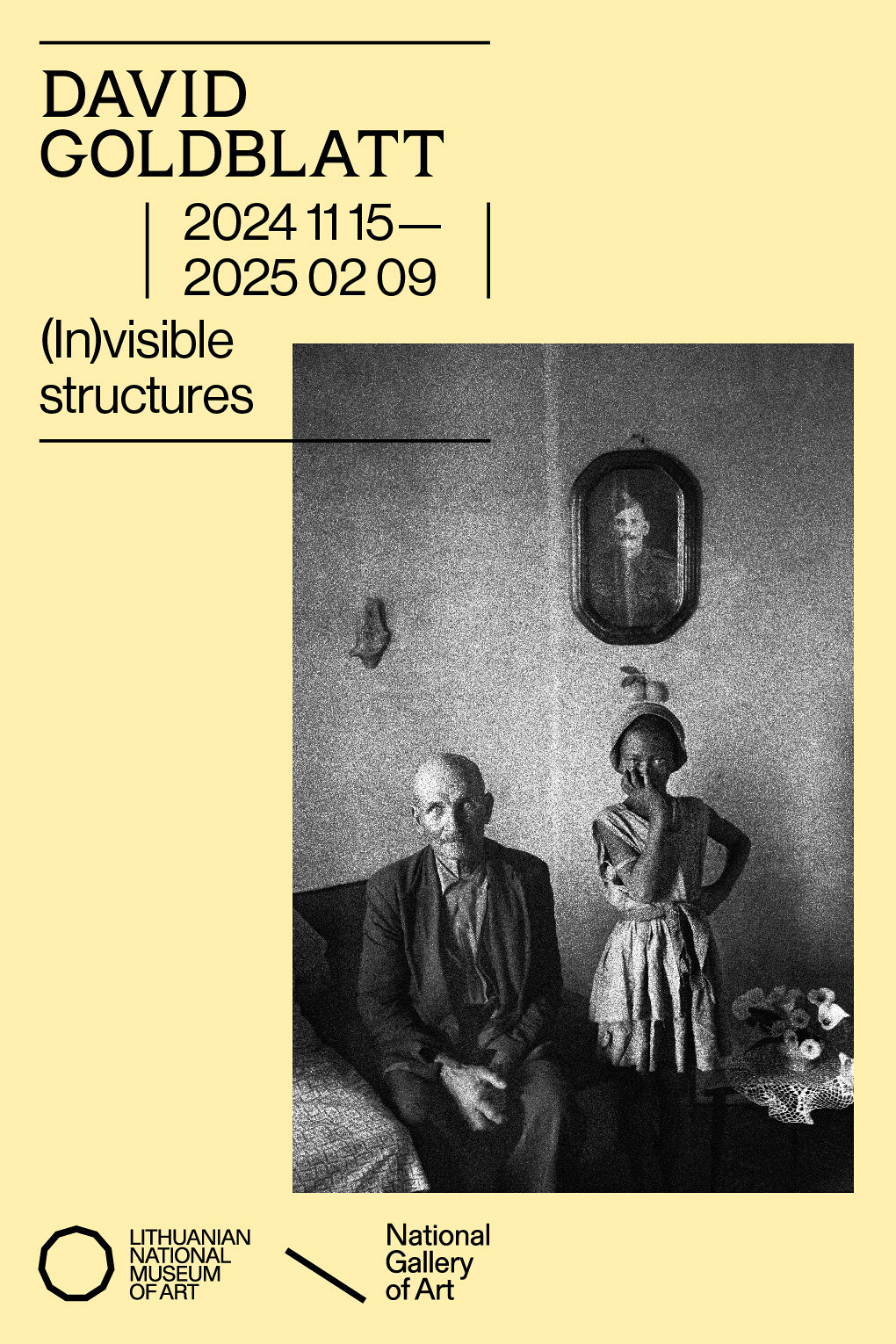ars viva exhibition 2019
October 7, 2018–January 20, 2019
Kaistr. 10
40221 Düsseldorf
Germany
10 years KAI 10 I ARTHENA FOUNDATION in Dusseldorf
With three exhibitions in one year, KAI 10 | ARTHENA FOUNDATION is celebrating its tenth anniversary starting in autumn 2018. The kickoff is an exhibition with this year’s awardees of the ars viva prize for visual art, Niko Abramidis & NE, Cana Bilir-Meier and Keto Logua. The exhibition is a cooperation with the Kulturkreis der deutschen Wirtschaft im BDI e. V.
Entrepreneur Monika Schnetkamp founded the non-profit art institution in 2008 as an independent platform for the presentation of contemporary art. KAI 10 | ARTHENA FOUNDATION is located in a former 1950s warehouse on Kaistrasse 10 in Dusseldorf and works outside the constraints of a collection or focusing on a specific artistic medium. In addition to other exhibition venues in the region, KAI 10 is accessible free of charge during regular daily opening hours and represents an innovative model of entrepreneurial support in the German art and cultural landscape. Since its opening, more than 150 artists from all over the world have already exhibited in KAI 10. The exhibition venue gained international fame above all through its participation in the 55th Venice Biennale.
The programme focuses on thematic group exhibitions that create a dialogue between various artists. Exhibitions at KAI 10 revolve around the pressing questions of our times and recent societal developments along with rather fundamental queries, raised time and again, concerning artistic processes and media-inherent questions. In the conception of its exhibitions, KAI 10 always starts with the artists’ practice. In group exhibitions several works by each of the artists present their creative ideas as broadly and comprehensively as possible. The spatial concepts of the ars viva prizewinners, who played a decisive role in the staging of their works and have created numerous new works on site at KAI 10, also correspond to this.
The ars viva exhibition
The Kulturkreis der deutschen Wirtschaft im BDI e. V. awarded the renowned ars viva prize for Fine Arts to Niko Abramidis & NE (*1987), Cana Bilir-Meier (*1986) and Keto Logua (*1988) in KAI 10 in October 2018. Since 1953, this prize has honoured outstanding young artists living in Germany whose works reveal an independent formal language and an awareness of contemporary issues. The prize is endowed with 15,000 euros and includes two exhibitions in renowned institutions for contemporary art in Germany and one other European country, a bilingual catalogue and an artist residency on Fogo Island (Canada).
The exhibition in Düsseldorf is curated by Julia Höner, who, since February 2018, succeeds Zdenek Felix as the artistic director of KAI 10 I ARTHENA FOUNDATION. Commenting on her curatorial concept, she says: “In KAI 10, we negotiate themes that are important not only in art but also in social discussion. This year’s award winners fit perfectly into the programme of KAI 10. We have conceived three independent presentations that merge to a compelling overall staging.”
The artistic positions
Niko Abramidis & NE refers in his work to future scenarios regarding economy, urban development and the role of work. Starting from sketches made in notebooks or on mobile phones, Abramidis creates parallel universes: spatial installations reminiscent of office spaces in which he creates fictitious corporate identities and appropriates forms of expression from the financial economy. His drawings, objects, and digital prints reveal subversive humour and references to science fiction, philosophy, and economic processes.
The starting point for Cana Bilir-Meier’s film, sound and text works is her engagement with public and private archives. She often refers to her family’s history and employs privately archived texts as well as audio and visual recordings to create aesthetic narratives around issues that are of greater public importance. Her work thus questions how knowledge is conventionally produced and who is in charge of disseminating it. Her emphasis is on migrant experiences and knowledge, which often receive little attention in public debates, relating, for example, the personal and officially circulating representation of Turkish immigrants in Germany to one another.
Keto Logua’s sculptures and video works show natural phenomena and nature cultivated by man. The artist conceptually employs found or self-created objects and subjects them to processes of compression and transformation. She has created, amongst other things, a 3D print of the primordial flower, which was scientifically reconstructed last year, and a large-format sculpture from beehive elements.



